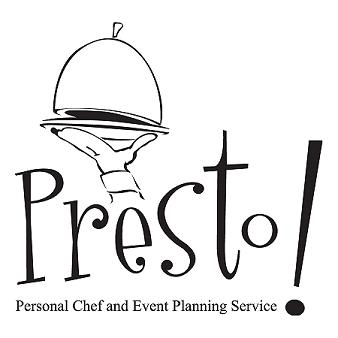Late summer is harvest time for fresh herbs. The smell of fresh herbs can be intoxicating. Home grown herbs have a more pungent flavor and are readily available when cooking ~ just step out the door and pick what you need. Most herbs grow well in Michigan. Potted plants make herbs available to us year round.
* Examples of annual herbs are parsley, basil, marjoram, dill.
* Examples of perennials herbs are chives, thyme, oregano, rosemary, mint, sage (Note from experience: some of these can overtake your garden so watch carefully).
Whether you are ambitiously starting your plants from seeds or buying a gorgeous mature plant in the produce section of your market, take a little time to see what conditions your herb prefers. Most enjoy full sun with regular watering but best to learn so your plant will stay with you for a while.
Fresh herbs are best used at the end of the cooking process. Heat will destroy their delicate flavor, so I like to sprinkle them on my plate instead of in the dish itself. When substituting fresh for dried the ratio is
3 parts fresh herbs : 1 part dried herbs
If you have an abundance of fresh herbs, you can either dry them or freeze them. In either case, make sure you start with clean, patted dry herbs. There are several ways to do both; I am just including one method:
DRYING HERBS: Place whole herb leaves in a single layer on a baking sheet. Place oven on the lowest setting and place herbs in with the door ajar until they have dried. Crush or leave whole and place in an airtight container. Dried herbs are good to use for up to six months.
FREEZING HERBS: Chop herbs and place a specific amount (i.e. 1 tablespoon) in an empty ice cube compartment. Once the tray is filled, fill each compartment with boiling water. The water will blanch the herbs, helping them retain their flavor. Once the water has cooled, place tray in freezer. Once cubes frozen, remove and place in an airtight container, like a freezer bag. Frozen herbs will lose their vibrant color. Now you have premeasured quantities that you can drop in to soups and sauces at the end of the cooking. Just heat long enough to melt the water. If you are concerned about the extra water in your dish, you can melt on a paper towel before adding to your dish. Frozen herbs are good to use for up to four months.
Here are some good on-line herb resources:
Food Network's Guide to Herbs & Spices - Photos, general information, recipe links
Herb Recipes and Cooking Info - Articles and general information about herbs, herb substitutions, recipe links
FreshHerbs.com - Historical and general information, nutritional information, recipes, hints and tips
Herbs offer natural cures for some common ailments, learn more at:

1 comment:
I wish I would have read this 2 weeks ago! I bought some heavenly smelling basil at the farmer's market, but it ended up going bad because I didn't know what to do with it. I will definitely snatch some more up now that I have an idea of what to do with them!
Post a Comment